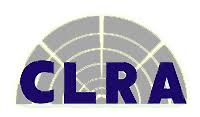Archive Blogs
EPFO
"EMPLOYEE BECOME ENTITLED TO BE MEMBER OF THE PROVIDENT FUND"
All the eligible employees in the establishment are to be extended the benefits of the Act. It is made clear that in view of the Amendment to para 26(2) of the Employees' Provident Fund Scheme, there is no exemption for coverage of an employee when joining an establishment as covered under the Act. The amendment as made has also been upheld by the Supreme Court. The Bombay High Court has clarified that the Government of India has the power under section 7(1) of the Employees' Provident Funds Act to modicy the Employees' Provident Fund Scheme, 1952 from time to time, hence coverage of an employee from the day of his joining will not be illegal.
A quasi-judical authority like provident fund commissioner should act reasonable, fairly and should not act with undue haste and arbitrainess. When a request had been made well in advance for adjournment of proceedings by assigning rseasons, the commissioner should have, in fairness, accommodated the petitioner by granting a short adjournment hence the order passed ex-parte being an arbitrary exercise of power which was in violation of Article 14 of the constitution cannot sustian.
________________________________________________________________________________________________________________
As per the rules, in EPF, employee whose ‘pay’ is more than Rs. 15,000 per month at the time of joining, is not eligible and is called non-eligible employee. Employees drawing less than Rs 15000 per month have to mandatorily become members of the EPF. However, an employee who is drawing ‘pay’ above prescribed limit (at present Rs 15,000) can become a member with permission of Assistant PF Commissioner, if he and his employer agree.
________________________________________________________________________________________________________________
All the eligible employees in the establishment are to be extended the benefits of the Act. It is made clear that in view of the Amendment to Para 26(2) of the employees' Provident fund scheme, there is no exemption for coverage of an employee when joining an establishment as covered under the Act. The amendment as made as also been upheld by the Supreme court. The Bombay High court has clarified that the Government of India has the power under section 7(1) of the Employees' provident funds Act to modify the Employees' provident funds scheme, 1952 from time to time, hence coverage of an employee from the day of his joining will not be illigal.
_______________________________________________________________________________________________________________
EPF Appellate Tribunal is empowered to condone delay beyond prescribed limit of 60 for further upto 60 days subject to sufficent causes to its satisfaction considering Rule 21 of EPF Appellate Tribunal (procedure),1997.Challenge to order of EPF Authority in writ petition is not maintainable till statutory remedy of appeal is not exhausted.
________________________________________________________________________________________________________________
Wages being paid on per piece basis is a mode of payment and it will not change the definition of 'employee' under the Act. Merely because the women workers were permitted to do work off site, would not take away their status as 'employees' in view of definition as provided under section 2(f) of the Act.
________________________________________________________________________________________________________________
Women doing stitching work at their own machines receving wages on piece rate basis would be employees coverable under section 2(f) of the employees provident funds and miscellaneous provision act 1952, irrespective of the fact that raw materials such as fabric,thread,buttons etc.were supplied by the company, since the garments were stitched as per specification provided by the company and the company had absolute right to reject the finished garments or goods in case of any defect.
___________________________________________________________________________________________________________________
The employees of newspaper industry have always been treated as a class apart and as such not treating them as "excluded employees" under the EPF & MP Act, 1952 and the scheme by a notification issued in 1956, will not be unconstitutional. ______________________________________________________________________________________________________________________________________________________ Be it clarified that the interest is earned on the provident fund contributions from the date of joining and becoming member. However, if an employee is withdrawing or settling his accumulation then such withdrawal will be subject to TDS. There are certain exemption which are enumerated as under as per circular of the Employees' Provident Fund Organisation dated 20.05.2019. 1. If he has rendered continuous service for a period of five years or more or 2. If, though he has not rendered such continuous service, the service has been terminated by reason of : a. the employees ill health or b. by the contraction or discontinuance of the employer's business or c. other cause beyond the control of employee, or 3. If, on cessation of his employment, the employee obtains employment with any other employer, to the extent amount of such accumulated balance is transferred to his individual account in any recognised provident fund maintained by such other employer. While computing the period of continuous service, the period or periods of continuous services rendered under former employer(s) shall be counted for the purpose of 1 & 2 above. Under the above situations, the accumulated balance due and payable to the employee is not liable for TDS under section 192 A of Income Tax Act, 1961. ------------------------------------------------------------------------------------------------------------------------------------------------------------------------------------------------------------------------------------------------------ Law is well settled that damages imposed by the EPF authority under Sec 14 B of the Employees' Provident Fund Act, 1952 can be recovered either from the transfer or from transferee but not from the both if once recovered from any one since liability is jointly and severely upon both. Considering employees engaged through contractors, doing contractual work, to be employees of principal employer, not proper when contractor was having separate licence for the purpose, principal employer not having control over the working of the employees engaged through contractors, contractors are independent establishments to carry on statutory testing of cylinders, since Section 2(f) of the Employees' Provident Funds and Miscellaneous Provisions Act, 1952, specially includes persons employed by or through contractors. The EPF Authority attached residential house and bank account of the previous director of the company for recovery of EPF dues. Petitioner-previous director challenged the order of the EPF Authority in writ petition. The Learned Single Judge of the High Court held that the relief as sought not permissible in writ jurisdiction. The petitioner is entitled to approach competent authority since the EPF dues are for the period before resigning the petitioner from the post of Director of the Company. Writ petition stands rejected. While holding proceedings under section 7A of the EPF Act, the Commissioner is vested with the power to collect all evidence and collate of material before coming to a proper conclusion but in the instant case, he has failed to call for any record to ascertain the unity of ownership, interdependence, transferability of employees from one unit to another. When the PF authorities did not ask for any relevant record for determination of money from the employers, there cannot be adverse inference that the coverage by clubbing three establishments is based on the adverse inference hence liable to be set aside.



